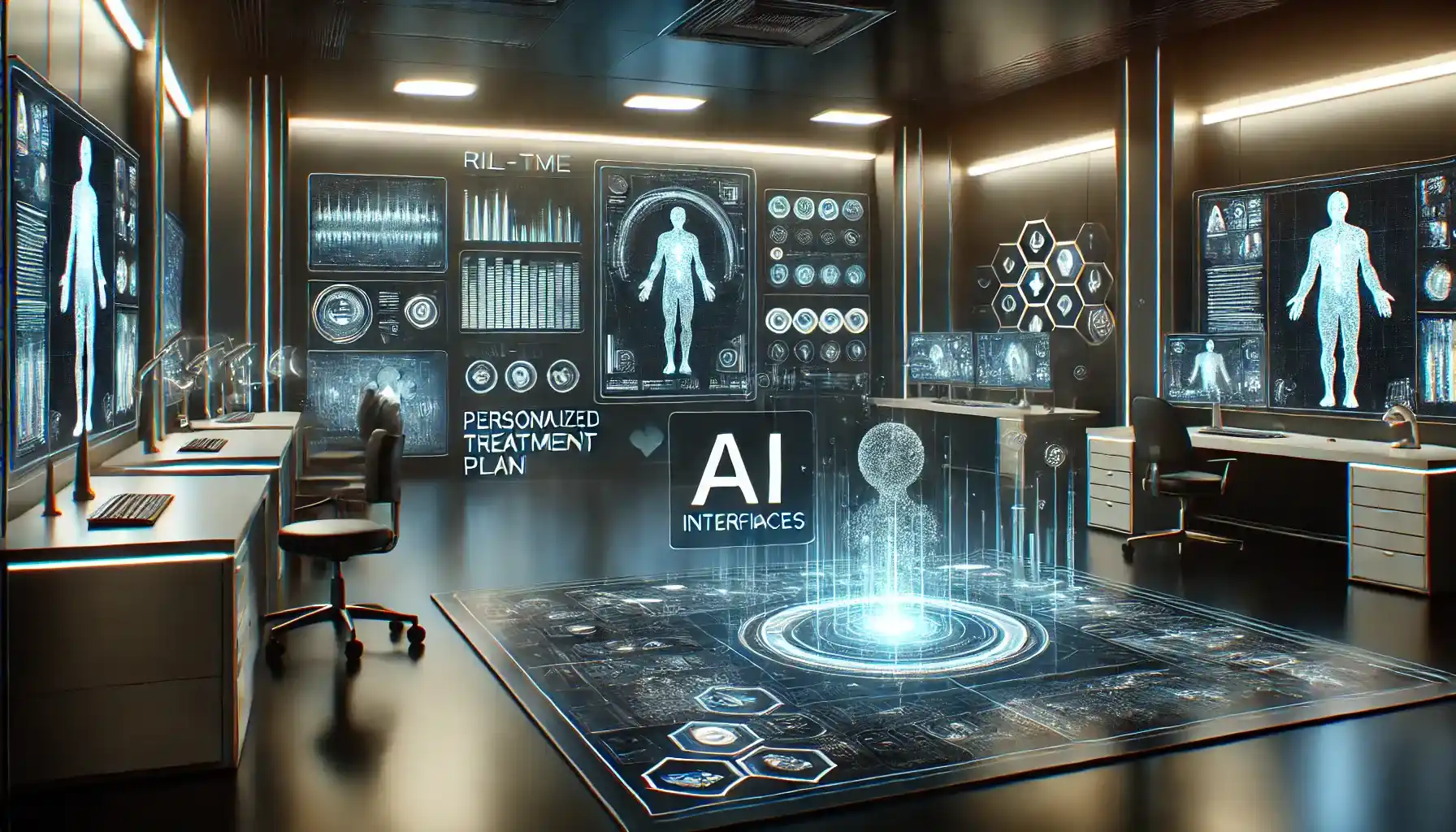Table of Contents
The healthcare landscape is undergoing a significant transformation, driven by the rapid advancements in artificial intelligence (AI). One area where AI is making a profound impact is in AI Personalized Treatment Plans. By leveraging vast amounts of clinical data and advanced analytics, healthcare professionals can now create tailored treatment strategies that consider an individual’s unique genetic profile, medical history, and lifestyle factors.
This paradigm shift towards precision medicine has the potential to significantly improve patient outcomes, reduce healthcare costs, and enhance the overall quality of care. With AI personalized treatment plans, patients can expect more effective management of their conditions, increased patient engagement, and a better understanding of their health journey.
AI Personalized treatment plans have the potential to transform patient care by providing more effective management of chronic conditions, improved disease prevention, and enhanced patient outcomes.
In this article, we’ll explore 7 life-changing innovations in AI Personalized Treatment plans that are redefining the healthcare landscape:
1. Personalized Treatment Recommendations
- AI algorithms analyze patient-specific data—such as medical history, genetic profiles, lifestyle factors, and treatment responses from similar cases—to offer personalized treatment recommendations.
- By assessing complex patterns and multiple variables that influence outcomes, AI provides healthcare professionals with deep insights to tailor treatment plans that align with each patient’s unique needs.
2. Intelligent Medical Records Management
- AI helps in efficiently managing electronic health records (EHRs) by analyzing and processing patient data. This streamlines clinical workflows, reduces administrative burdens and ensures more accurate, up-to-date information for healthcare providers.
- AI-powered monitoring systems track patients in AI-personalized treatment plan responses in real-time by gathering data from wearable devices, electronic health records (EHRs), and patient-reported outcomes.
- By continuously analyzing this data, AI offers valuable insights into the effectiveness of ongoing treatments, enabling healthcare professionals to adjust plans or intervene promptly if necessary.

3. AI Personalized Treatment Plans
- AI analyzes a patient’s unique characteristics—such as genetic makeup, medical history, and comorbidities—to design tailored treatment plans. This leads to more effective therapies, better health outcomes, and enhanced patient satisfaction through individualized care.
- AI not only personalizes care but also optimizes treatment strategies by considering factors like patient preferences, resource availability, cost-effectiveness, and clinical guidelines.
- Through computational models and simulations, AI can evaluate multiple treatment options and recommend the most suitable one. This approach leads to better outcomes and supports healthcare providers in making well-informed decisions, especially in complex cases.
4. Patient Engagement and Education
- AI-powered tools empower patients to take an active role in their healthcare by providing personalized information and real-time monitoring. These tools enhance understanding of conditions, improve self-care, and boost overall engagement in their treatment plans.
- Allowing patients to actively participate in their healthcare journey through AI-powered tools and applications that provide personalized health information and monitoring capabilities.
5. Automated Appointment Scheduling and Resource Allocation
- AI optimizes the scheduling of appointments and allocation of healthcare resources. This reduces patient wait times, enhances satisfaction, and ensures efficient use of hospital staff and facilities, ultimately increasing productivity.
- This technology uses machine learning algorithms to analyze patient data, staff availability, and facility capacity to optimize the scheduling process.

6. Predictive Analytics for Demand Forecasting
- By analyzing historical data and healthcare trends, AI can forecast future healthcare demands. This allows providers to better prepare for upcoming patient needs, ensuring the right resources and staff are available when needed.
- This allows providers to prepare for upcoming patient needs, ensuring that the right resources and staff are available when needed.
7. Intelligent Decision Support Systems
- AI-driven decision support systems offer healthcare professionals data-driven, evidence-based recommendations, empowering them to make more informed and accurate clinical decisions. By processing vast amounts of clinical data, these systems reduce uncertainty, help make informed decisions, and improve overall treatment outcomes for patients.
- These systems process vast amounts of clinical data to identify patterns and trends, reducing uncertainty and improving treatment outcomes for patients.
Conclusion
The integration of AI Personalized Treatment Plans has the potential to revolutionize healthcare delivery by enabling providers to make data-driven decisions that optimize patient care. By leveraging advanced algorithms and vast amounts of patient data, AI Personalized Treatment Plans can help reduce uncertainty, improve treatment outcomes, and enhance patient satisfaction.
As we move forward in this new era of personalized medicine, healthcare providers need to adopt AI Personalized Treatment Plans as a key component of their care delivery strategies.